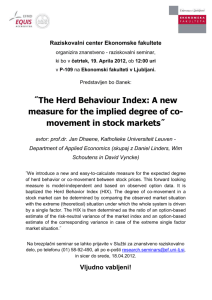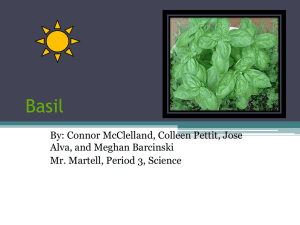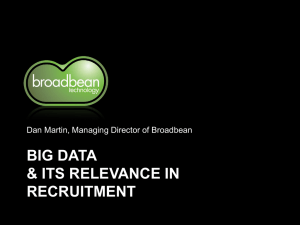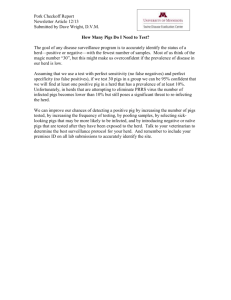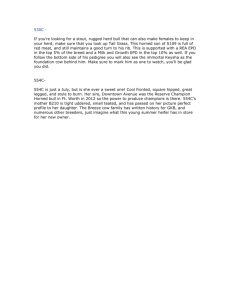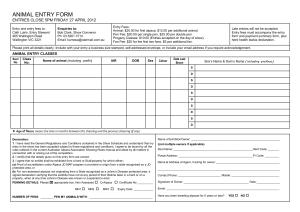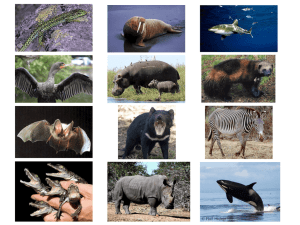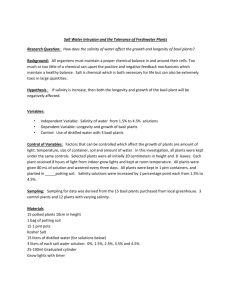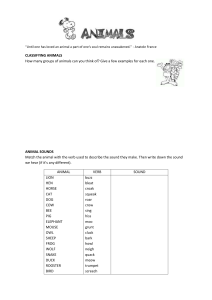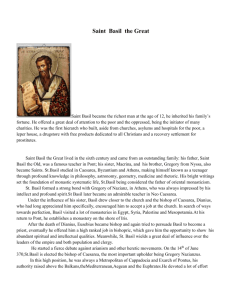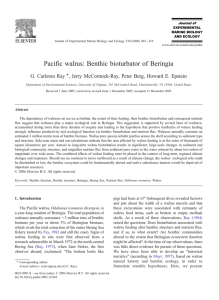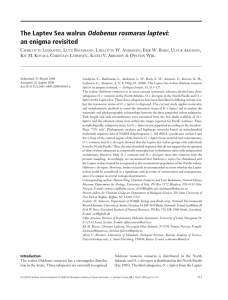The Poorly Informed Walrus Developed by Barbara McCain
advertisement
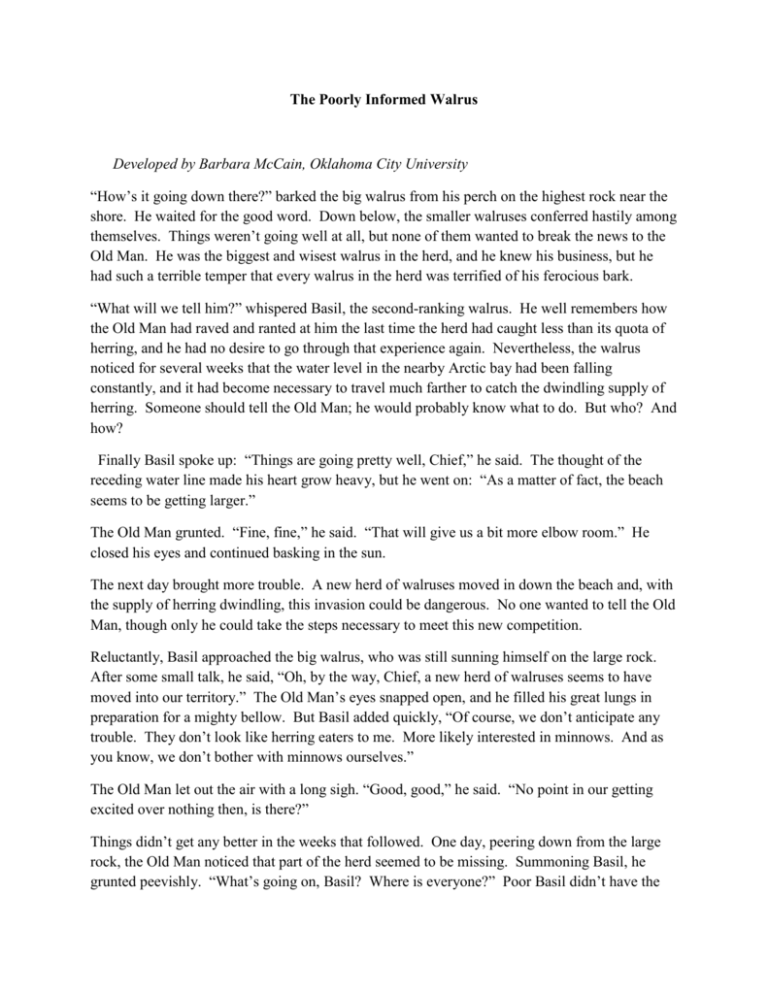
The Poorly Informed Walrus Developed by Barbara McCain, Oklahoma City University “How’s it going down there?” barked the big walrus from his perch on the highest rock near the shore. He waited for the good word. Down below, the smaller walruses conferred hastily among themselves. Things weren’t going well at all, but none of them wanted to break the news to the Old Man. He was the biggest and wisest walrus in the herd, and he knew his business, but he had such a terrible temper that every walrus in the herd was terrified of his ferocious bark. “What will we tell him?” whispered Basil, the second-ranking walrus. He well remembers how the Old Man had raved and ranted at him the last time the herd had caught less than its quota of herring, and he had no desire to go through that experience again. Nevertheless, the walrus noticed for several weeks that the water level in the nearby Arctic bay had been falling constantly, and it had become necessary to travel much farther to catch the dwindling supply of herring. Someone should tell the Old Man; he would probably know what to do. But who? And how? Finally Basil spoke up: “Things are going pretty well, Chief,” he said. The thought of the receding water line made his heart grow heavy, but he went on: “As a matter of fact, the beach seems to be getting larger.” The Old Man grunted. “Fine, fine,” he said. “That will give us a bit more elbow room.” He closed his eyes and continued basking in the sun. The next day brought more trouble. A new herd of walruses moved in down the beach and, with the supply of herring dwindling, this invasion could be dangerous. No one wanted to tell the Old Man, though only he could take the steps necessary to meet this new competition. Reluctantly, Basil approached the big walrus, who was still sunning himself on the large rock. After some small talk, he said, “Oh, by the way, Chief, a new herd of walruses seems to have moved into our territory.” The Old Man’s eyes snapped open, and he filled his great lungs in preparation for a mighty bellow. But Basil added quickly, “Of course, we don’t anticipate any trouble. They don’t look like herring eaters to me. More likely interested in minnows. And as you know, we don’t bother with minnows ourselves.” The Old Man let out the air with a long sigh. “Good, good,” he said. “No point in our getting excited over nothing then, is there?” Things didn’t get any better in the weeks that followed. One day, peering down from the large rock, the Old Man noticed that part of the herd seemed to be missing. Summoning Basil, he grunted peevishly. “What’s going on, Basil? Where is everyone?” Poor Basil didn’t have the courage to tell the Old Man that many of the younger walruses were leaving every day to join the new herd. Clearing his throat nervously, he said, “Well Chief, we’ve been tightening up things a bit. You know, getting rid of some of the dead wood. After all, a herd is only as good as the walruses in it.” “Run a tight ship, I always say,” the Old Man grunted. “Glad to hear that all is going so well.” Before long, everyone but Basil had left to join the new herd, and Basil realized that the time had come to tell the Old Man the facts. Terrified but determined, he flopped up to the large rock. “Chief,” he said, “I have bad news. The rest of the herd has left you.” The old walrus was so astonished that he couldn’t even work up a good bellow. “Left me?” he cried. “All of them? But why? How could this happen?” Basil didn’t have the heart to tell him, so he merely shrugged helplessly. “I can’t understand it,” the old walrus said. “And just when everything was going so well.” Review Questions 1. What barriers to communication are evident in this fable? 2. What communication “lessons” does this fable offer to those who are serious about careers in the new workplace??
